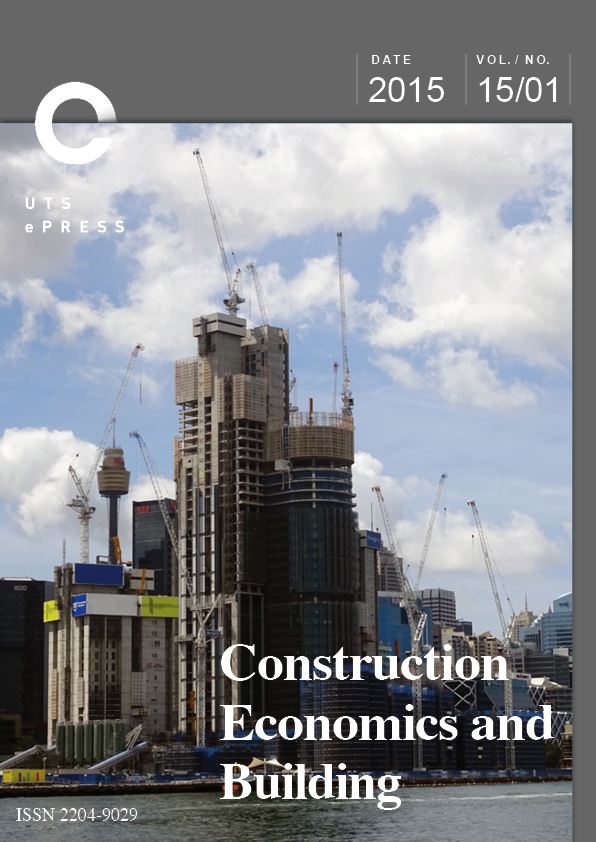Causes of Payment Problems in the New Zealand Construction Industry
Main Article Content
Abstract
Payment delays and losses persist in the construction industry and continue to be a key concern to industry practitioners. Therefore an exploration of the key causes of payment delays and losses is undertaken in this study with the ultimate objective of seeking mitigating solutions. The study adopted a survey approach using an online questionnaire, administered to practitioners from the New Zealand construction industry, comprising consultants, head contractors and subcontractors. The data obtained was analysed using inferential statistical techniques, including comparing means and factor analysis. Factor analysis enabled clustering of the inter-related causes of payment delays and losses in order to find reduced number of causes. Accordingly, the study found that payment problems mainly relate to contractual issues, financial strength of industry players, disputes, short-comings of payment processes and ‘domino effects’. Among them, the financial strength of critical industry players was considered central to payment problems. The study concludes that any solution to these problems must address these primary causes, as a rational starting point. Thus procuring a feasible form of financial security at the outset of a project, and the pre-qualification of the financial status of critical project participants, were found to be significant in the mitigation of construction payment risks.
Paper Type: Research article
Article Details
Section
Authors who publish with this journal agree to the following terms:
a) Authors retain copyright and grant the journal right of first publication with the work simultaneously licensed under a Creative Commons Attribution License that allows others to share and adapt the work with an acknowledgement of the work's authorship and initial publication in this journal.
b) Authors are able to enter into separate, additional contractual arrangements for the non-exclusive distribution of the journal's published version of the work (e.g., post it to an institutional repository or publish it in a book), with an acknowledgement of its initial publication in this journal.
c) Authors are permitted and encouraged to post their work online (e.g., in institutional repositories or on their website) prior to and during the submission process, as it can lead to productive exchanges, as well as earlier and greater citation of published work (See The Open Access Citation Advantage Service). Where authors include such a work in an institutional repository or on their website (ie. a copy of a work which has been published in a UTS ePRESS journal, or a pre-print or post-print version of that work), we request that they include a statement that acknowledges the UTS ePRESS publication including the name of the journal, the volume number and a web-link to the journal item.
d) Authors should be aware that the Creative Commons Attribution (CC-BY) License permits readers to share (copy and redistribute the work in any medium or format) and adapt (remix, transform, and build upon the work) for any purpose, even commercially, provided they also give appropriate credit to the work, provide a link to the license, and indicate if changes were made. They may do these things in any reasonable manner, but not in any way that suggests you or your publisher endorses their use.
